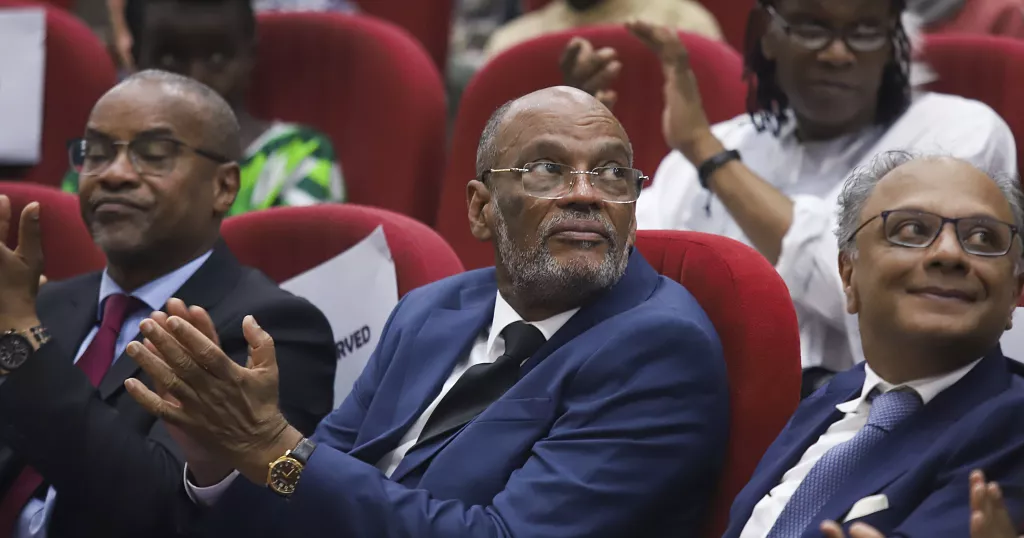Caribbean Leaders in Race Against Gang Violence
Downtown Port-au-Prince, the capital of Haiti, bore unmistakable signs of a recent gang battle near the National Palace, with terrified families fleeing the city. Chaos ensued on the streets, marked by a woman lying wounded from a stray bullet during a clash between the police and gang members. Armed police, equipped with assault rifles, nervously patrolled the area in armored vehicles, navigating streets strewn with bullet shells from the previous night’s confrontation on Champ de Mars, home to the National Palace and several government buildings.
In the adjacent Carrefour Feuillie neighborhood, families hastily evacuated their homes, carrying essentials and children in plastic bags, adding to the 15,000 already displaced since the escalation of violence on February 29th. Seeking refuge in schools or any available safe space, these displaced individuals face an uncertain future, as there appears to be no immediate end to the ongoing violence.
Amidst this turmoil, leaders from the Caribbean region initiated an emergency meeting in Jamaica, scheduled for Monday, involving the United States, Canada, and France. The aim is to address the escalating gang violence in Haiti collaboratively. The CARICOM regional trade bloc has long been persuading political entities in Haiti to form a comprehensive transitional unity government. Notably, Brazil and the United Nations representatives have also received invitations to participate in this crucial meeting.
Guyanese President Irfaan Ali, acting as the Caribbean Community chairman, emphasized the severity of the situation on the ground, expressing deep concern. The urgency of the matter underscores the need for collective action to mitigate the crisis.
Complicating matters, Haiti’s Prime Minister, Ariel Henry, finds himself in a precarious position. While he had traveled to Kenya to advocate for the U.N.-backed deployment of a police force from East Africa to combat gangs in Haiti, he now faces challenges returning home. Attempts to land in the Dominican Republic, Haiti’s neighboring country, were thwarted, leading him to Puerto Rico. Amid calls for Henry’s resignation or the formation of a transitional council, the political landscape remains tumultuous.
Haiti has grappled with widespread gang violence for nearly three years, exacerbated by the assassination of President Jovenel Moise in July 2021, which further destabilized the nation’s political climate. The international community’s involvement, particularly from Caribbean leaders and allies, highlights the gravity of the situation and the imperative for collaborative efforts to restore stability to Haiti.


















